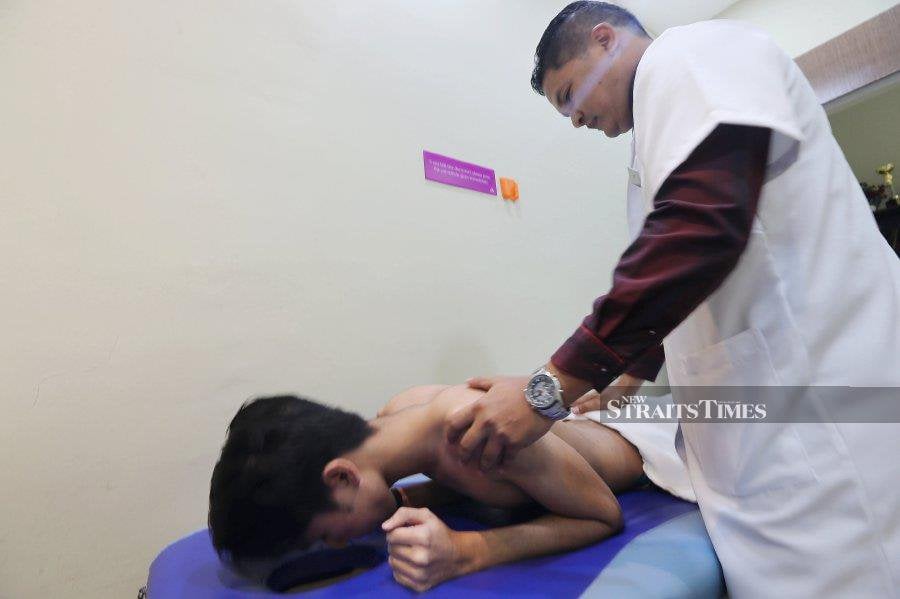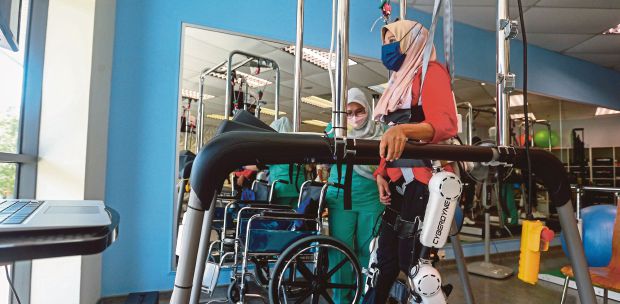PHYSIOTHERAPY services aim to prevent, minimise, or eliminate impairments of body functions and structures, activity limitations, and participation restrictions.
According to the Malaysian Institute of Human Resource Management, physiotherapy is one of the top five emerging professions in the job market and the career choice for aspiring school leavers.
The US News (2022) rates physiotherapy as the 11th best healthcare job and one of the most enjoyable careers.
Similarly, the World Confederation for Physical Therapy (2017) asserts that physiotherapy is a dynamic profession with wide clinical applications in the restoration, maintenance, and promotion of human movement and functional ability.
Given their importance in enhancing people's health, wellbeing and quality of life, physiotherapists are governed by laws and statutes to ensure services are rendered by qualified and licensed professionals.
The scope of practice of physiotherapy as an independent profession in the healthcare industry is well-defined in countries including the United States, Canada, the United Kingdom, Australia.
This is in tandem with the World Health Organisation (WHO) recognition of the physiotherapy profession as an independent practice.
Malaysia is fortunate to have the Malaysia Allied Health Profession Act, 2016 which governs all physiotherapists. They are required to register beginning July this year with the Malaysian Allied Health Professional Council, under the Health Ministry.
The Malaysian Physiotherapy Association estimates about 3,000 qualified physiotherapists are in practice in the country.
This is equivalent to a ratio of 1 to 13,000 people, which is far below the global average of 1 to 3,000 in advanced countries. This demonstrates a critical talent gap in the physiotherapy profession.
Here are five strategies to boost the professional and independent role of physiotherapists in health services.
First, as physiotherapists are now regulated under the new act, the process of registration and the provision of fit-to-practice licence based on continual professional development (CPD) merits should quickly be in place.
This will then protect the professional rights of physiotherapists and safeguard public interest.
Second, the profession should adopt evidence-based practice. Emphasis should be on adherence by physiotherapists to clinical-practice guidelines, or recommendations based on research evidence.
This way, patients can know that they are getting the most-up-to-date treatments. Therefore, physiotherapists will gain valuable experience by involving themselves in evidence-based practice.
Third, the growing awareness among patients is also bringing a much-needed shift in the provision of health services as they demand a better quality of care. Such demand necessitates better collaboration and coordination among different stakeholders in the health system.
Fourth, the education of physiotherapists should focus on developing analytical and clinical reasoning skills in meeting individual patient's need.
Additionally, evidence-based practice should be included and strengthened at the undergraduate and postgraduate curriculum.
The American Physical Therapy Association exhorts that the practice of physiotherapy must be grounded in unique body of knowledge, supported by educational training underpinned by evidence-based practice.
Fifth, effort is needed to raise the awareness of physiotherapists on the importance of evidence-based practice for quality patient care.
They must be ready to implement evidence-based practice by taking positive steps to overcome the barriers that may hamper the process.
To practice evidence-based physiotherapy, physiotherapists must be an excellent history-taker, exemplary clinical examiner, a consumer of empirical evidence and a thoughtful diagnostician and therapist.
Physiotherapy is as much an art as it is a science. Evidence-based practice can help in achieving both aspects of this discipline.
The scientific evidence from research and the primary data collected from the patients and their caregivers can assist physiotherapists in their diagnosis, as well as the creation of specific treatment plans.
As such, the practice of physiotherapy improves if service is evidence-based.
Such evidence-based service delivery can result in better patient outcomes as their needs are determined and treatment plans are customised to those specific needs.
The writer is Dean, Faculty of Allied Health Professions, AIMST University Malaysia





